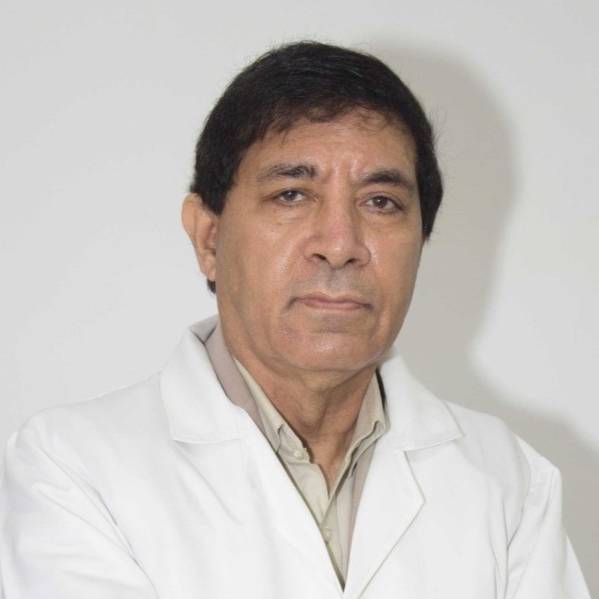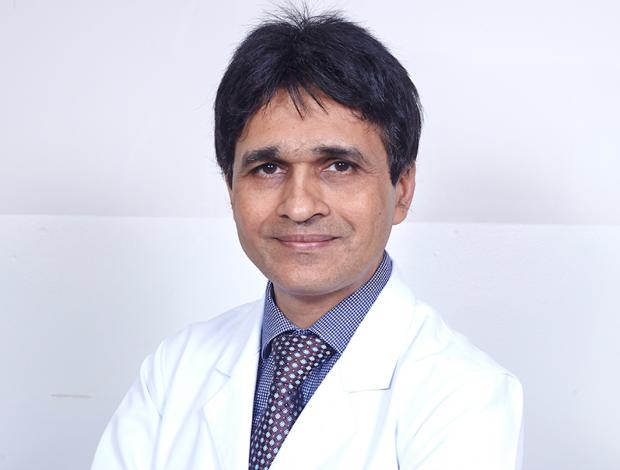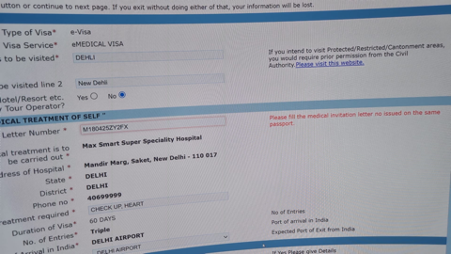About the Doctor
After graduating in Medicine with first class in 1978 from Osmania University, Dr. Jayachandra completed a post-graduate diploma in chest diseases and tuberculosis in the year 1983-84. He is a pioneer in the field of Pulmonology with 38 years of expertise and is considered the best pulmonologist in Hyderabad. He started a modern setup in the field of chest medicine. For the first time in the twin cities of (Hyderabad & Secunderabad ), he set up chest outpatient services, having all diagnostic facilities under one roof, with Bronchofibrescope (FOB) and computerized pulmonary function test laboratory and added these to an existing setup for diagnosis for the chest.
Pioneering the advancement of practice in chest medicine in Hyderabad, he set a trend, which now has many followers. He has been trained in Marseilles, France for Thoracoscopy. He is one of the pioneers in Thoracoscopy in the entire South of India. Now, he has considerable experience in this investigative modality. Over the last 25 years of practice, he has accumulated a wealth of experience in the management of chest diseases and critical care problems.
Specialization
- Chronic cough
- Asthma
- Chronic obstructive pulmonology disease (COPD)
- Tuberculosis
- Bronchitis
- Persistent respiratory failure
- Smoker’s cough
- Interstitial lung disease
- Post-COVID lung disorders
Frequently Asked Questions About Pulmonology
What is Pulmonary (Lung) Function Test?
PFT measures how much air you can breathe in and out and how fast you can do it and how well your lungs are working to deliver oxygen to your blood. PFT is a painless test and a technician will ask you to take a deep breath and then blow as hard as you can into a tube connected to PFT machine.
PFT is the most important test for the diagnosis and management of COPD. PFT is similar to ECG of the lungs.
What all conditions do Pulmonologist Treat?
COPD, Asthma, Tuberculosis, ILD (Interstitial Lung Disease), Respiratory Failure, Lung Cancer, Sleep Apnea syndrome (OSAHS), Snoring, Pleural Effusions, Pneumothorax, Pulmonary infections, Sarcoidosis, Hemoptysis (coughing out blood), Lymph nodes (glands)/ Masses in the chest
Is asthma Fatal?
Asthma, if not taken care of or controlled properly can prove to be fatal. Studies have shown that people who died of asthma, one third of them had mild disease. Thus, it is very important to keep your asthma in check and try and reduce your exposure to polluted air as much as possible.
When is Asthma Alarming?
Asthma can be caused by exposure to dust, pollens, cockroaches, house mites, air pollutants, perfumes, smoke and viral infections. It can be life threatening for some people and may require intervention. Few alarming symptoms are:
- Breathing in hard that the abdomen is sucked inside the ribs
- Gasping for air
- Difficulty in speaking
When to see the doctor for Asthma?
hen the air passage between the mouth, nose and lungs gets interrupted and there is inflammation or swelling of bronchial tubes, you might be suffering from serious bronchitis. A prolonged cough and cold can lead to acute bronchitis in children, while older adults can be also face problems in breathing if medical intervention is not taken on time. You need to visit the doctor if:
- You are having high fever- more than 101 degrees
- Difficulty in sleeping
- Coughing up blood
- Gasping for breath
- You are producing any discolored mucus
How will I know if I am suffering from Sleep apnea?
Sleep apnea is one of the most common disorders that often go undiagnosed. Sleep apnea should not be overlooked because its symptoms are so broad that it can interrupt your hard day at work and can lead to serious complications. The most common symptoms are:
- Waking up with sore or dry throat
- Loud snoring
- Occasionally waking up with a choking or gasping sensation
- Sleepiness or lack of energy during the day
- Sleepiness while driving
- Morning headaches
- Restless sleep
- Forgetfulness and mood changes
In addition to this, Obstructive Sleep Apnea (OSA) can have a negative impact on your health and can cause:
- Heart attack and Blood Pressure
- Diabetes
- Lead to Weight Gain
- Depression
- Aging of Skin

















